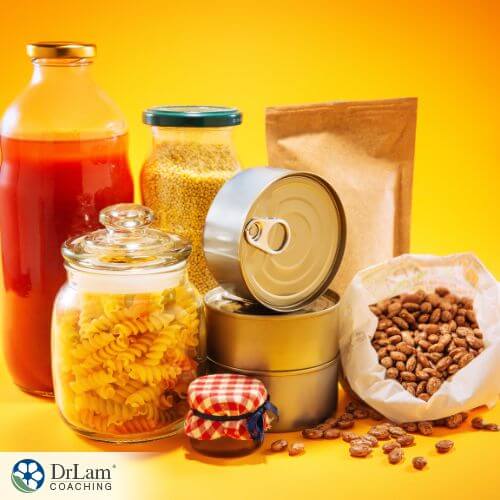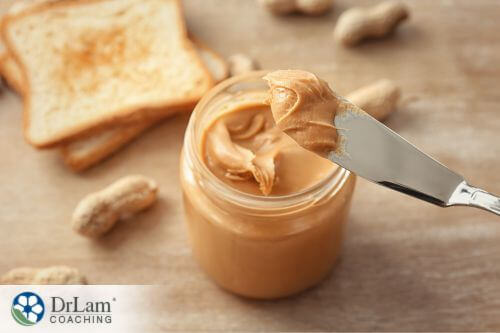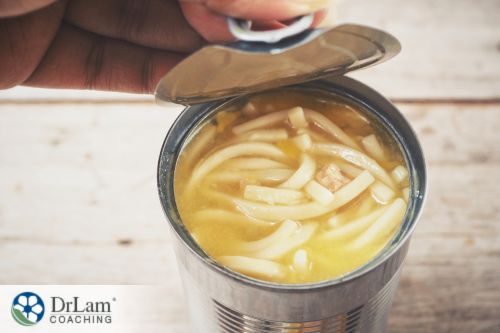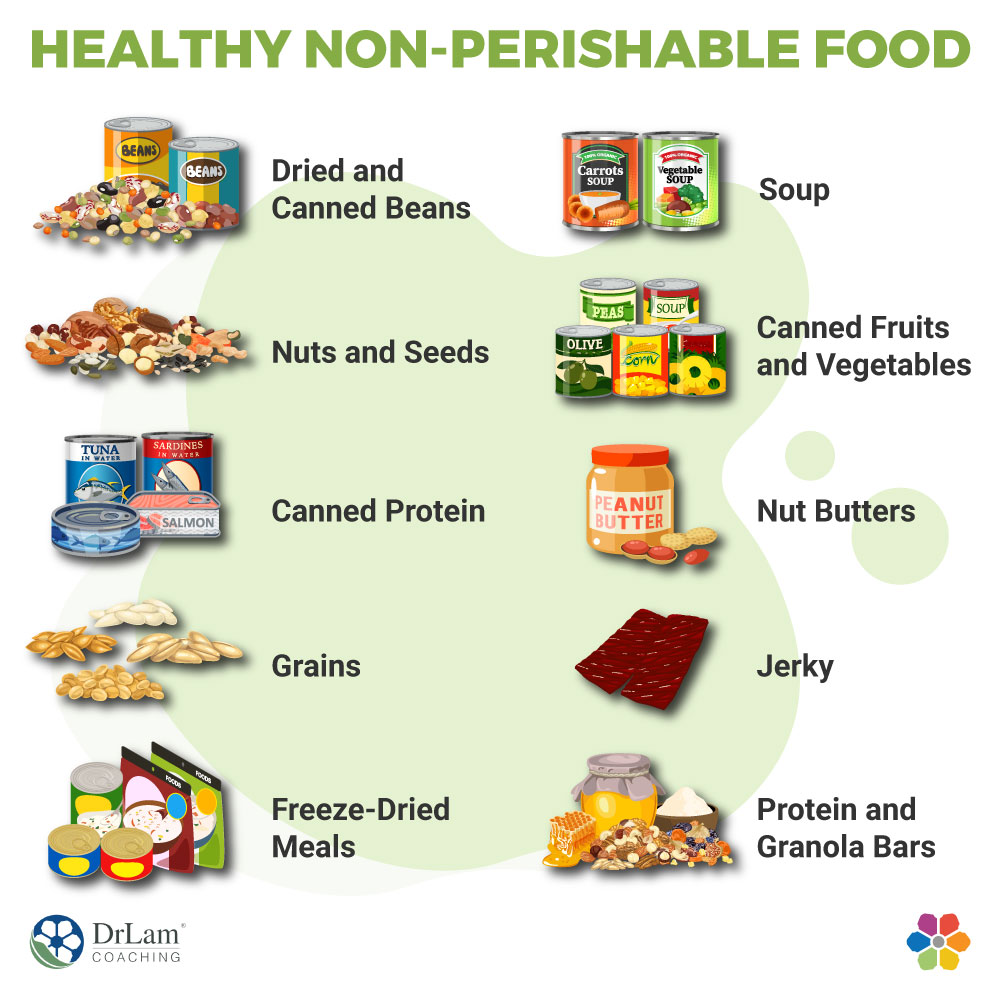 Non-perishable foods are not just for natural disasters. For many people, these foods make up a large part of their diet. The definition of non-perishable food is food that is processed or packaged to withstand a long time. But just because they are processed doesn't mean that they have to be bad for you. It is possible to choose non-perishable foods that are healthy. This article will explore a variety of healthy non-perishable foods and their health benefits.
Non-perishable foods are not just for natural disasters. For many people, these foods make up a large part of their diet. The definition of non-perishable food is food that is processed or packaged to withstand a long time. But just because they are processed doesn't mean that they have to be bad for you. It is possible to choose non-perishable foods that are healthy. This article will explore a variety of healthy non-perishable foods and their health benefits.
This is one of the more well-known healthy non-perishable food types, and it is versatile with many benefits. Canning is an effective way of increasing the shelf life of food products. It also kills bacteria during this process and prevents bacteria from entering afterward.
Dried or canned beans are able to be kept for many years. The shelf life of canned beans is between two to five years if kept at room temperature. Dried beans can last up to ten years or more depending on the packaging.
Beans are a good source of plant-based protein. Additionally, beans are also a source of fiber, magnesium, B vitamins, iron, and zinc. This food is also versatile and can be used in many different dishes such as curries, soups, stews, and salads.
Whilst dried and canned beans are a healthy non-perishable food, it is important to remember that beans not only contain protein but also contain carbohydrates. This makes portion size important to ensure that you do not exceed the recommended carbohydrate intake.
This is also a common healthy non-perishable food and is one that not only can you buy, but you can also make it yourself. The shelf life of canned fruits and vegetables depends on the fruits and vegetables in question. Vegetables that have a lower acid level such as potatoes, spinach, and carrots can last from two to five years if stored at room temperature. However, fruits that are high in acid such as pineapple, berries, apples, and peaches will only last 12 to 18 months.
Canned fruits and vegetables contain multiple different nutrients depending on the fruit or vegetable. Note that many vitamins and minerals can be lost in the heating and canning process. Also, whilst this class can be healthy, opt for fruits that are canned in water or 100% fruit juice. Fruit canned in syrup will increase the total intake of added sugar.
Nuts and seeds are rich in unsaturated fats that can assist in reducing inflammation, promoting brain health, and reducing blood pressure. They are also very high in energy and a great way to meet your energy requirements. Seeds are also a great way of adding fiber to your diet. Intake of nuts and seeds has been shown to decrease the risk of heart disease (1).
Portion size for nuts and seeds is important as they are high in calories, therefore calling for smaller portion sizes. Stored in an air-tight container in the fridge or freezer, nuts and seeds could last up to two years. However, in an unsealed container in the pantry, their shelf life can be much shorter.
 Nut butters are another way in which you can still get the benefits of nuts. The shelf life of nut butter will depend on what temperature you store the butter and what type of nut butter it is. Commercial peanut butter can last for up to two years unopened. However, preservative-free peanut butter lasts for a only few months, and only around one month once opened. At 77 degrees, it may go rancid sooner.
Nut butters are another way in which you can still get the benefits of nuts. The shelf life of nut butter will depend on what temperature you store the butter and what type of nut butter it is. Commercial peanut butter can last for up to two years unopened. However, preservative-free peanut butter lasts for a only few months, and only around one month once opened. At 77 degrees, it may go rancid sooner.
Whilst fresh meat is the most common type of protein, canned meat such as canned fish and poultry are also available. Canned fish and poultry carry the same benefits as the perishable versions of this protein: they are rich in iron, B vitamins, and unsaturated fats in the case of fish. If stored at room temperature, canned protein can last up to five years depending on the packaging. Fish is also commonly sold in lightweight packaging, also known as retort pouches, making it a great option for camping or hiking. These smaller pouches have a shorter shelf life, with tuna retort pouches having a shelf life of about 18 months.
If canned protein doesn't sound like an appealing non-perishable food, jerky can be an option. Jerky is a way of preserving meat by curing it in a salt solution. The most common type is beef jerky, but this method of preserving can be used in a wide range of different types of proteins. Storage-wise, commercial jerky can be stored for up to a year, whilst homemade jerky can be stored for up to two months.
Whilst homemade jerky does have a shorter shelf life, it does give you more control as to what ingredients you can put into it. However, if you buy commercial jerky, try to choose one that is low in added sugars, artificial flavors, and preservatives.
Many forget that grains are non-perishable and are one of the healthy non-perishable foods that you can store in your pantry. There is a wide variety of whole grains available such as:
The shelf life of the grains depends on which grain and the temperature at which they are stored. Brown rice can be kept up for six months, and longer stored in an air-tight container in the freezer. Farro can last up to six months.
Grains are a source of carbohydrates, as well as a source of vitamins, minerals, and fiber. Fiber has many benefits and can help reduce cholesterol levels, improve gut health, and assist in weight management. Studies suggest that individuals who consume a higher content of grains as a source of fiber are at lower risk for developing conditions such as heart disease, obesity, and diabetes (2).
This food is not only a healthy non-perishable food, but it is also a handy snack that is rich in energy and nutrients. These bars can be made yourself or bought and generally contain a range of different ingredients such as:
These bars can have a shelf life of one year, although you should check on the packaging. If you decide to buy these bars, try to choose a brand that uses natural ingredients and one that is low in added sugar.
 This healthy non-perishable food is one that many charities prefer. This may be because it is essentially a meal in a can. In addition, low-acid soups can have a shelf life of up to five years. The exception here is soups with a tomato base, as the shelf life is then 18 months. If it is a dried soup mix, the label will provide more information on the expiry date, but they can last up to a year in many cases.
This healthy non-perishable food is one that many charities prefer. This may be because it is essentially a meal in a can. In addition, low-acid soups can have a shelf life of up to five years. The exception here is soups with a tomato base, as the shelf life is then 18 months. If it is a dried soup mix, the label will provide more information on the expiry date, but they can last up to a year in many cases.
Soups are a great food to add to your pantry, as there are a wide range of different kinds and they can help to increase your legume and vegetable intake. When choosing soups, try to choose a brand that is low in sodium and added sugars. Some soups can be very high in sodium, in particular, which can have negative health effects at more than your daily needs.
This can be a handy non-perishable food to have and is a great option if you are camping or hiking. Freeze-dried meals use a process called sublimation. This is where, as ice is converted into vapor, it removes the water from the product and increases its shelf life. It also makes the food weigh less, making it a good choice when hiking. There are many companies that specialize in freeze-dried meals, and some have a 30-year taste guarantee.
Whilst there are many non-perishable healthy foods, there are not as many liquids. Milk is one that can be non-perishable depending on the milk. Long-life milk is processed differently from fresh milk and is placed under higher temperatures and packed in sterile containers. This helps to increase the shelf life of the milk (3).
Plant-based milk can also have a longer shelf life. Soy milk and coconut milk are two types that are non-perishable and can last a relatively long time. Soy milk can last for up to ten months, whilst coconut milk if canned can last up to five years.
Powdered milk, or dry milk, is another version of milk that has a long shelf life of 3-5 years. The milk can be used when needed and can help to reduce wastage, as you can use as much as you need and the rest can be stored and doesn't need to spoil. Note that non-fat dry milk lasts much longer than whole-fat dry milk, as the fats can go rancid.

Nutrition plays an important role in maintaining your health and in managing stress. Poor nutrition, such as fast food, foods high in sugar, or foods lacking nutrients, increases the stress on your body. This can lead to adrenal fatigue and other stress-related conditions.
Whilst your body can handle short-term stress through the Neuro Endo Metabolic (NEM) Stress Response System, when stress becomes long-term, imbalances within your NEM system can start to occur. These imbalances can result in the onset of Adrenal Fatigue Syndrome (AFS). AFS is the non-Addison's form of adrenal dysfunction, where the body's stress response cannot keep up with life's chronic stressors.
 Symptoms of AFS will depend on where the imbalance in the NEM system is occurring. However, some symptoms that can occur include changes in weight, changes in sleep, and more frequent illnesses. Good quality nutrition can help to manage these symptoms by providing nutrients that help to manage weight and support your immune system, brain health, and other essential organs.
Symptoms of AFS will depend on where the imbalance in the NEM system is occurring. However, some symptoms that can occur include changes in weight, changes in sleep, and more frequent illnesses. Good quality nutrition can help to manage these symptoms by providing nutrients that help to manage weight and support your immune system, brain health, and other essential organs.
Choosing healthy non-perishable foods is important to helping your body cope with a stressful time, such as while undergoing the strain of a long hiking trip or while dealing with a natural disaster or a time of scarcity. Maintaining a balanced diet is essential to avoiding AFS.
Non-perishable foods that are healthy are products that play an important role in your meals and are foods that you can stock up on and rely on. Whilst many may think of soups as the only non-perishable foods, there is a wide range of different non-perishable foods available. These foods can be nutritious and provide a source of vitamins, minerals, and fiber.
If you are concerned that your nutrition may be placing more stress on your body than supporting it, the team at Dr. Lam can assist. We offer a free, no-obligation phone consultation at +1 (626) 571-1234 where we will privately discuss your symptoms and various options. You can also send us a question through our Ask The Doctor system.
Feingold, Kenneth R., et al. "The Effect of Diet on Cardiovascular Disease and Lipid and Lipoprotein Levels." Endotext, last updated 2021 Apr., www.ncbi.nlm.nih.gov/books/NBK570127/.
Prasadi, N., and I. Joye. "Dietary Fibre from Whole Grains and Their Benefits on Metabolic Health." Nutrients, vol. 12, no. 10, 2020 Oct., pp. 3045, www.mdpi.com/2072-6643/12/10/3045.
Karlsson, M. A., et al. "Changes in Stability and Shelf-Life of Ultra-High Temperature Treated Milk During Long Term Storage at Different Temperatures." Heliyon, vol. 5, no. 9, 2019 Sep., www.ncbi.nlm.nih.gov/pmc/articles/PMC6745408/.
When choosing healthy non-perishable foods, look for foods that are low in added sugar and sodium. Maintaining a balanced diet is still important, so try to purchase a range of foods to meet your nutritional needs, such as whole grains, nuts, legumes, canned protein, and canned fruits and vegetables. Also keep in mind that many foods last the longest when stored in sealed containers in the freezer.
